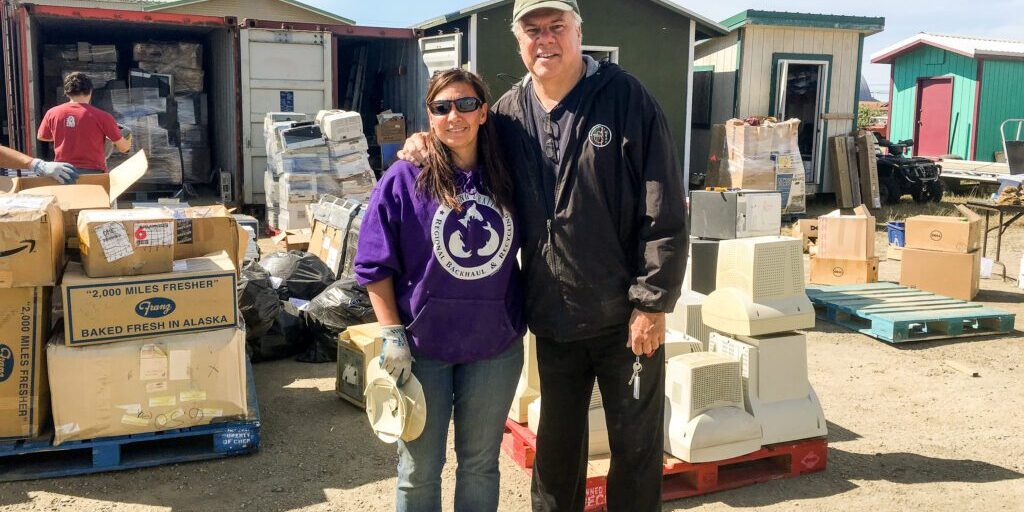For 45 years, we at KNOM have not only worked to serve the many communities of rural, Western Alaska, but we’ve also endeavored to be a part of these communities as well — and to give back to the people who, through your support, have made our broadcasts a part of their daily lives. One of the forms this type of immersive service has taken, in recent years, has been our participation in Nome’s annual e-waste pickup.
Nome, like all of the communities KNOM serves, exists off Alaska’s road system, in a remote, very rural corner of the state. The geographic challenges faced by Nome and its satellite villages sometimes can make even basic civil services, like garbage pickup and recycling, much more complicated or unwieldy. The types of recycling that are common to most places in the Lower 48, for instance, are frequently impossible in KNOM country. This can become especially problematic when it comes to environmentally sensitive products, like electronics, that have reached the end of their usable life; even in remote Alaska, it’s not a good idea to simply throw these away, because of the potential contamination their materials could pose to the sensitive ecosystem of the sub-Arctic.
That’s where Nome’s e-waste pickup comes in. Thanks to the efforts of local tribal organization Kawerak (kuh-WEAR-ick) and, in particular, pickup organizer Anahma Shannon — pictured above with KNOM’s general manager Ric Schmidt — the residents of our region have an easy and environmentally-responsible way to dispose of their junked electronics. For several days each June, Anahma’s team works to load hundreds of “e-waste” items (from spent computer monitors and flat-screen TVs to depleted AAA batteries) into massive cargo containers, which are eventually shipped south to Seattle for processing. At KNOM, we do our part by spreading the word on the air about this important opportunity — and by participating ourselves.

KNOM’s staff (among them volunteer Maddie Winchester, pictured with Ric) teamed up, early last month, to collect all the electronic waste from our facilities — the fluorescent bulbs, burned out computer monitors, and other items ready to be retired after many years of regular use — and added them to this year’s e-waste gathering.
Events like these, we believe, showcase not only the special efforts often required for even the basics of daily life in Western Alaska, but also the great, daily impact your support continues to make. Thanks very much for all you do.




